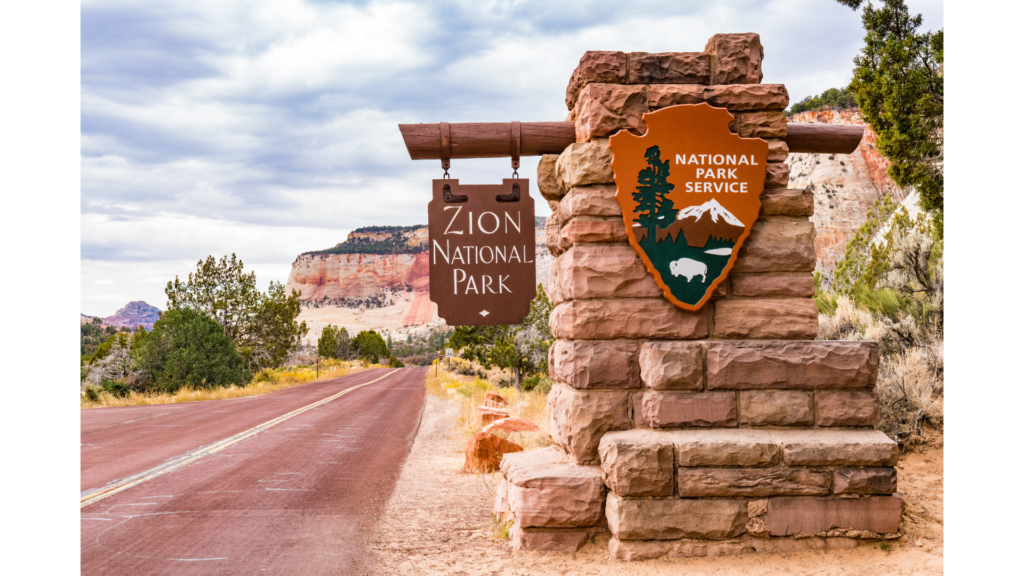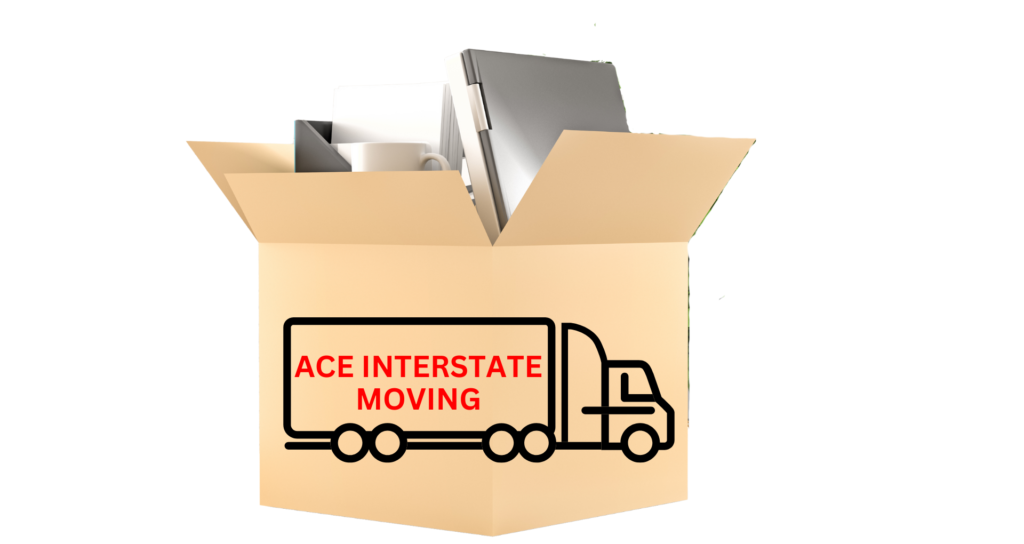Are you considering a move to Louisiana? Whether you’re drawn to the lively culture, delicious food, or warm southern hospitality, Louisiana offers a unique and vibrant lifestyle. But moving to a new state is a significant decision that requires careful thought and planning. In this comprehensive guide, we’ll walk you through the essential things to know when moving to Louisiana, from the best places to live to understanding local moving logistics. Plus, we’ll share how Ace Interstate Moving, a moving companies listing platform, can help you find the top-rated moving services in your area.
Why Move to Louisiana?
Louisiana is a state that offers a rich history, beautiful landscapes, and a one-of-a-kind culture that combines French, African, Spanish, and Native American influences. Known for its world-class cuisine, unique festivals like Mardi Gras, and vibrant music scene, Louisiana is a state unlike any other. Here are a few reasons why people choose to move here:
1. Culture and History

Louisiana is a cultural melting pot with a diverse heritage that is reflected in its food, music, art, and festivals. The state’s French and African influences create a distinct vibe that’s unlike any other in the country. Whether you’re exploring New Orleans’ jazz scene, attending a Mardi Gras parade, or enjoying Creole and Cajun cuisine, there’s always something exciting to experience in Louisiana.
2. Great Food
Louisiana is known for its rich culinary traditions, particularly Creole and Cajun cuisines. Dishes like gumbo, jambalaya, crawfish étouffée, and beignets are just a few of the mouth-watering options that residents and visitors indulge in. Foodies will never be disappointed when it comes to dining in Louisiana.
3. Mild Climate
Louisiana has a relatively mild climate, with hot and humid summers and mild winters. The state’s warm weather is perfect for those who prefer to avoid the chill of northern winters. However, it’s important to consider the humidity and the potential for severe storms, especially during hurricane season.
4. Affordability
Compared to many other states, Louisiana offers affordable living costs. Housing is relatively inexpensive, and there are several regions where you can find affordable real estate without compromising on quality of life.
5. Outdoor Activities
With its swamps, bayous, and extensive river systems, Louisiana offers numerous opportunities for outdoor activities, including fishing, boating, and hunting. Nature lovers will find plenty of ways to enjoy the state’s scenic landscapes.
Key Considerations Before Moving to Louisiana
Moving to Louisiana can be an exciting step, but like any major relocation, it requires thorough preparation. Known for its vibrant culture, warm climate, and rich history, Louisiana offers a unique lifestyle, but it’s essential to evaluate several factors before making the move. From understanding local weather patterns to researching neighborhoods and the job market, proper planning ensures a smooth transition. Let’s dive deeper into the key considerations to keep in mind before relocating to the Bayou State.
1. Research the Area
Louisiana is a state of contrasts, with each city and region offering its own distinct charm and character. The choice between bustling New Orleans, family-friendly Baton Rouge, and smaller towns like Lafayette or Alexandria depends largely on your lifestyle preferences.

- Urban vs. Rural Living: New Orleans is known for its vibrant nightlife, historical districts, and cultural richness, but it comes with higher crime rates and a faster pace of life. On the other hand, towns like Shreveport or Monroe offer a quieter, more laid-back atmosphere with lower crime rates and a stronger sense of community.
- Schools and Education: If you’re moving with children, researching school districts is crucial. Louisiana’s public education system faces challenges, so some families opt for private schools. Baton Rouge and Lafayette have highly-rated private schools and magnet programs, while New Orleans offers charter school options.
- Healthcare Access: Access to quality healthcare varies depending on the region. Larger cities like New Orleans and Baton Rouge are home to renowned medical centers, while rural areas may have limited facilities. If healthcare is a priority, factor in proximity to hospitals when choosing your location.
- Quality of Life: Evaluate factors such as traffic, proximity to amenities, and recreational opportunities. For instance, Lafayette is celebrated for its Cajun culture and community events, while New Orleans offers a mix of music, food, and festivals year-round.
Researching the area thoroughly ensures you find a location that aligns with your priorities and lifestyle.
2. Understand the Weather
Louisiana’s subtropical climate is a defining feature of the state, but it’s important to prepare for the challenges it can bring.
- Hot and Humid Summers: Summers in Louisiana are long, with temperatures often exceeding 90°F (32°C) and high humidity making it feel even warmer. Proper air conditioning is a must, and staying hydrated is essential for health and comfort.
- Mild Winters: Winters are mild compared to northern states, with temperatures averaging 50–60°F (10–15°C). Snowfall is rare, making Louisiana an attractive option for those looking to avoid harsh winters.
- Hurricane Season: Louisiana is prone to tropical storms and hurricanes, particularly between June and November. Cities like New Orleans and Lake Charles have experienced significant hurricane damage in the past. If you’re moving to a coastal area, familiarize yourself with evacuation routes and consider purchasing flood insurance.
- Flood Risks: Much of Louisiana is low-lying, and flooding is a common concern, especially in areas near rivers, bayous, and the Gulf Coast. Research FEMA flood maps to determine if your chosen location is in a high-risk zone.
- Severe Weather Preparedness: Make sure your home has storm-proof windows and a reliable emergency kit. Staying informed about local weather alerts is crucial during storm season.
Understanding Louisiana’s climate allows you to prepare for the elements and ensure your home and family are safe.
3. Choose the Right Neighborhood
Selecting the right neighborhood can significantly impact your experience in Louisiana. Factors like safety, amenities, commute times, and community vibe all play a role in making the best choice for your family.
- New Orleans Neighborhoods: Areas like the French Quarter and the Garden District are rich in history and culture, but they come with higher living costs and tourist traffic. Suburbs like Metairie and Gretna offer quieter, family-friendly environments while still being close to the city.
- Baton Rouge Suburbs: Baton Rouge offers a mix of urban and suburban living. Neighborhoods like Mid City provide a central location with artsy vibes, while areas like Prairieville are ideal for families seeking top-rated schools and spacious homes.
- Affordable Small Towns: For those seeking affordability and a slower pace, towns like Alexandria and Hammond offer affordable housing, lower crime rates, and a welcoming small-town atmosphere.
- Community and Culture: Louisiana is known for its hospitality, and many neighborhoods host local events and festivals that bring residents together. Check community calendars to see which areas align with your interests.
Take time to visit potential neighborhoods before deciding, and consider factors like walkability, proximity to work or school, and local amenities.
4. Job Market
Louisiana’s economy is diverse, but job opportunities can vary significantly depending on the region and your industry. Researching the local job market before moving is essential for career stability.
- Thriving Industries: Louisiana is a hub for the energy sector, particularly oil and gas. Other prominent industries include healthcare, education, agriculture, and tourism.
- Tech and Remote Work Opportunities: Cities like Baton Rouge and Lafayette are investing in tech hubs, offering opportunities for IT professionals. With the rise of remote work, many people are choosing to live in Louisiana while working for companies in other states.
- Challenges in Rural Areas: Job opportunities in rural parts of the state may be limited, particularly in industries outside of agriculture and small businesses. Consider commuting options if you’re drawn to these areas.
- Networking Opportunities: Louisiana’s culture of community and hospitality extends to professional networking. Engaging in local events and joining professional organizations can help you connect with potential employers.
Make sure to research job opportunities and salary expectations in your field before finalizing your move.
5. Cost of Living

One of Louisiana’s biggest draws is its affordability. Compared to many other states, living in Louisiana allows you to stretch your dollar further, particularly when it comes to housing and groceries.
- Housing Costs: The median home price in Louisiana is significantly lower than the national average. For renters, cities like Shreveport and Lafayette offer affordable options, while New Orleans can be pricier due to its popularity and historical charm.
- Utilities: While housing is affordable, utility costs can be higher due to the need for air conditioning during hot summers. Budgeting for electricity and water bills is important, particularly if you’re moving to a larger home.
- Groceries and Dining: Louisiana’s food culture is a highlight, and eating out is relatively affordable compared to other states. Farmers’ markets and local seafood vendors also offer budget-friendly ways to enjoy fresh, local cuisine.
- Taxes: Louisiana has a combined state and local sales tax rate that is among the highest in the country. Property taxes, however, are lower than the national average.
- Transportation Costs: Gas prices in Louisiana are typically below the national average, but public transportation options are limited outside of New Orleans. Owning a car is often a necessity, particularly in rural areas.
Evaluating your monthly budget and the cost of living in your chosen area ensures you can maintain financial stability after your move.
The Best Cities in Louisiana to Move To
When considering a move to Louisiana, you’ll want to explore the best cities and regions that fit your lifestyle. Here are some of the top places to live in Louisiana:
1. New Orleans
New Orleans is the cultural heart of Louisiana. Known for its rich history, vibrant arts scene, and world-famous cuisine, this city is a favorite for those seeking a unique urban experience. However, living in New Orleans also comes with challenges, including higher crime rates and the potential for flooding. If you’re drawn to the excitement of the French Quarter, the music scene, and Mardi Gras, this could be the perfect city for you.
2. Baton Rouge
Baton Rouge, Louisiana’s state capital, offers a more laid-back lifestyle compared to New Orleans. It’s a growing city with a strong job market, particularly in education, healthcare, and government sectors. Baton Rouge is also known for its historical significance, vibrant culture, and beautiful riverfront views.
3. Lafayette
Known for its Cajun culture and delicious food, Lafayette is a great place for those looking to live in a smaller city with a rich sense of community. It’s affordable, family-friendly, and offers easy access to outdoor activities. Lafayette’s economy is fueled by the oil, gas, and agriculture industries, so there are ample job opportunities in these sectors.
4. Shreveport
Shreveport is a charming city in northwestern Louisiana, offering a more rural lifestyle with the benefits of urban amenities. Known for its casinos, music scene, and affordable housing, Shreveport is a great choice for those seeking a slower pace of life without sacrificing entertainment options.
5. Alexandria
Located in central Louisiana, Alexandria is a quiet, friendly city with a low cost of living. It’s an ideal location for people looking for a small-town vibe with easy access to nature and outdoor activities. Alexandria is also a gateway to Louisiana’s scenic attractions, such as Kisatchie National Forest.
Moving to Louisiana: Logistics and Tips
Relocating to Louisiana can be an exciting journey, but it also requires thorough planning to ensure a smooth transition. From managing the logistics of the move to understanding the state’s unique culture and climate, there are several factors to consider. This guide will walk you through essential tips and strategies to make your move to Louisiana as seamless as possible.
1. Hire a Reliable Moving Company
Choosing the right moving company is one of the most critical steps in your relocation. Moving long distances involves handling logistics, timing, and the safe transportation of your belongings. That’s where Ace Interstate Moving can assist.

At Ace Interstate Moving, we rate and review moving companies to help you find the best options for your needs. Whether you’re moving within Louisiana or relocating from another state, our platform provides detailed ratings of top-rated moving companies. These ratings are based on customer reviews, service quality, pricing, and reliability, ensuring that you choose a moving company you can trust.
When evaluating moving companies, consider:
- Reputation: Look for companies with positive reviews and high ratings on Ace Interstate Moving.
- Services Offered: Confirm if the company provides additional services such as packing, storage, or handling specialty items.
- Pricing: Compare estimates to find a service that fits your budget while maintaining quality.
- Insurance: Ensure the moving company offers appropriate insurance to protect your belongings.
2. Plan for Louisiana’s Weather
Louisiana’s climate is a defining feature that can significantly impact your move. Known for its hot, humid summers and the risk of hurricanes, you’ll need to plan accordingly.
- Summer Moves: Prepare for temperatures often exceeding 90°F (32°C) with high humidity. Pack heat-sensitive items carefully, and schedule moving times in the cooler parts of the day.
- Hurricane Season: Louisiana’s hurricane season runs from June through November. If you’re moving during this time, stay updated on weather forecasts and have an emergency plan in place.
- Rainy Days: The state experiences frequent rain, so ensure that your movers are prepared to protect your belongings from water damage.
3. Understand Local Regulations
Moving to Louisiana requires you to familiarize yourself with local laws and regulations, especially if you’re relocating to an urban area like New Orleans or Baton Rouge.
- Parking Permits: Certain cities may require permits for moving trucks, especially if parking on narrow streets or in busy areas. Check with local city offices ahead of time.
- Restricted Moving Hours: In residential and historic neighborhoods, moving activities may be limited to specific hours. Verify these rules to avoid complications.
- HOA and Building Requirements: If you’re moving into a community with a homeowners’ association or a condo building, confirm their moving policies, such as reserving elevators or loading docks.
4. Invest in Moving Insurance
Protecting your belongings during a long-distance move is essential. While most professional movers take precautions, accidents can happen. Moving insurance ensures you’re covered in case of damages or loss.
- Basic Liability Coverage: This is typically included in moving packages but may only cover a small amount per pound of damaged items.
- Full-Value Protection: Opt for this coverage if you want full reimbursement or replacement value for any damaged items.
- Third-Party Insurance: For highly valuable or irreplaceable items, consider a policy from an independent insurance provider.
Ace Interstate Moving rates companies based on their transparency and reliability in offering insurance coverage, helping you make a well-informed choice.
5. Timing Your Move
The timing of your relocation can impact everything from the cost to the convenience of your move.
- Off-Peak Season: Moving during fall or winter can help you secure better rates and avoid the busy summer moving season.
- Midweek Moves: Scheduling your move on a weekday rather than a weekend can save money and avoid traffic congestion.
- Early Planning: Book your moving company well in advance, especially if you’re moving during peak months.
6. Pack Strategically
Packing is often one of the most time-consuming parts of moving. Packing strategically can save you time, money, and effort when it’s time to unpack in Louisiana.
- Declutter First: Donate or sell items you no longer need to reduce the volume of items to pack and move.
- Use Durable Packing Materials: Invest in high-quality boxes, tape, and cushioning materials to protect your belongings.
- Label Clearly: Mark boxes with the room they belong to and a brief description of their contents for easier unpacking.
- Prepare an Essentials Box: Keep items like toiletries, important documents, snacks, and a change of clothes handy for your first day in your new home.
7. Explore Louisiana Once You’ve Settled
After the logistics are sorted and you’ve moved into your new home, take the time to explore Louisiana’s unique culture and environment.
- Food Scene: Enjoy local delicacies like gumbo, crawfish étouffée, jambalaya, and beignets.
- Music and Festivals: Louisiana is famous for its jazz, zydeco, and blues music. Don’t miss events like Mardi Gras or the Jazz & Heritage Festival in New Orleans.
- Nature and Outdoors: Explore the state’s bayous, swamps, and Gulf Coast beaches for outdoor adventures and wildlife sightings.
Why Choose Ace Interstate Moving?
At Ace Interstate Moving, we’re committed to simplifying your relocation journey. We’re not just a moving companies listing platform—we’re your trusted partner in finding top-rated moving companies to make your move stress-free.
Our ratings are based on a range of factors, including:
- Customer satisfaction and feedback.
- Service reliability and professionalism.
- Affordability and transparency in pricing.
- Specialized services, such as long-distance moves and handling fragile items.
Whether you’re moving to New Orleans, Baton Rouge, Lafayette, or any other part of Louisiana, Ace Interstate Moving provides you with all the information you need to select a moving company that meets your expectations.
Conclusion
Moving to Louisiana can be an exciting and rewarding experience. With its rich culture, great food, mild climate, and affordable cost of living, Louisiana offers a lifestyle that many people find appealing. However, it’s important to plan your move carefully, considering factors like the weather, job market, and cost of living. Ace Interstate Moving is here to help you every step of the way by connecting you with top-rated moving companies. Whether you’re moving from out of state or relocating within Louisiana, we make the process easier and less stressful.
Let Ace Interstate Moving assist you in finding the best moving company for your needs so you can enjoy the excitement of settling into your new Louisiana home.







